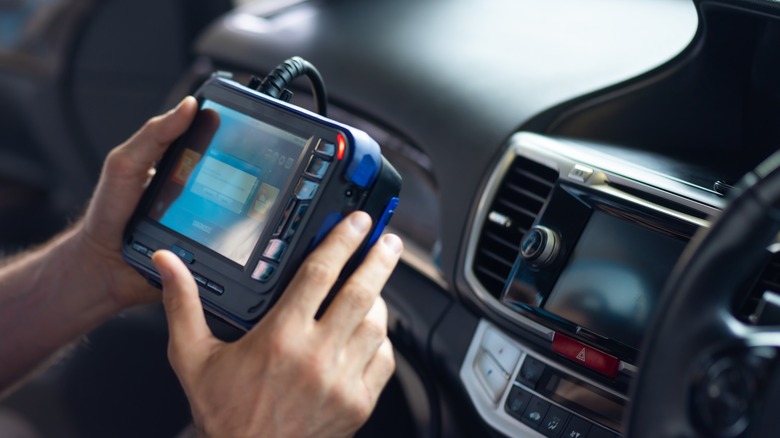Here's Why The NHTSA Is Undermining A New Right To Repair Law
The Right to Repair fight has been raging on for several years. Rightfully so, consumers want to get their cars serviced and repaired wherever they want. Oftentimes, getting your car worked on at its respective dealer is prohibitively expensive, but if that right to repair was taken away, you wouldn't really have any other choice.
Yesterday, the National Highway Traffic Safety Administration sent out a letter to just about every automaker in the United States warning that a new Right to Repair bill passed in Massachusetts could have serious repercussions.
As sinister as that sounds on the surface, the NHTSA's concern is at least somewhat rooted in reality. The government says that allowing remote access to a vehicle's data could have unintended safety consequences. Specifically, remote access to a car's telematics could be problematic.
That data can potentially include GPS data and cab control of vital vehicle functions, which can be disastrous if it ends up in the wrong hands. Having your vehicle's data potentially open to anyone in the world with an internet connection and some coding skills isn't exactly advisable.
Preparing for the future
The letter, in part, states: "A malicious actor here or abroad could utilize such open access to remotely command vehicles to operate dangerously, including attacking multiple vehicles concurrently. Vehicle crashes, injuries, or deaths are foreseeable outcomes of such a situation."
As for a possible solution, the NHTSA notes that some manufacturers have disabled vehicle telematics data entirely. However, that doesn't seem to be a valid solution, as the data does have real world use to both manufacturers and even first responders in the event of an accident.
It's yet to be seen how this could potentially be resolved, both in the courts and how manufacturers respond to the NHTSA. As vehicles get more and more connected by the day, this potential problem isn't going to fade away with time, and will likely only get more relevant. This is not a case of a government agency stomping on your rights to make a political point or line the pockets of automakers. The NHTSA raises real concerns that should be addressed.

